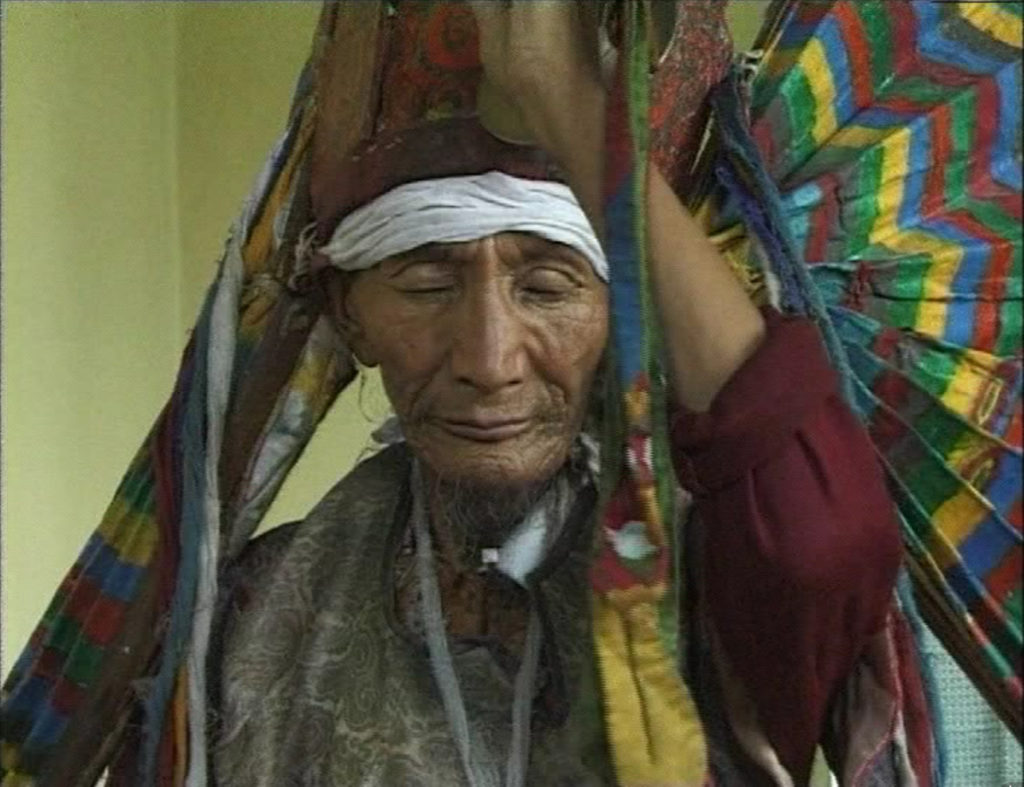
Retour Jour par jour / Day by Day Liste des films / List of films
Patrimoine religieux
The Spirit Doesn’t Come Anymore
1997 | 38 min. | vosta
réalisation : Tsering Rithar (Népal)
image : Tsering Rithar
son : Tsering Rithar , Sherab Lhawang
montage : Murali Gurrapa
musique : Tsering Topten Nelung
production/distribution : Company Mila Productions (P) Ltd. (Kathmandu, Népal) – mila@wlink.com.np
La guérison chamanique, pratique ancienne de la culture tibétaine, se transmet de père en fils. Pao Wangchuk, soixante-dix-huit ans, vit dans le camp de réfugiés tibétains de Pokhara au Népal. Il est le treizième d’une lignée ininterrompue de médiums. Cependant son fils aîné, Karma, le désespère, car il n’a pas la vocation qui lui permettrait de poursuivre la tradition familiale.
The Tibetan belief of curing diseases through going into a trance by invoking certain spirits/protectors has been practiced and socially accepted for over a millennium. This art is mostly inherited by the healer’s son – sometimes by a daughter, who hereditarily posses this inborn channel which only needs to be opened to be initiated as a healer. With a history of 13 generation of continuous spiritual healers in the family, 78-year-old Pao Wangchuk is frustrated with the fact that his son is incapable of continuing the family legacy.
Tsering Rithar, né au Népal, étudie le cinéma à la Jamia Millia Islamia (Delhi, Inde). En 1994, il filme pendant un an à Dharamsala (Inde) le Dalaï-Lama et les institutions du gouvernement tibétain en exil. Son œuvre comprend Tears of Torture sur une nonne tibétaine ayant fui le Tibet à pied, The Spirit Doesn’t Come Anymore, ainsi que deux films de fiction : Mukundo (Mask of Desire) largement montré dans les festivals internationaux et Karma – Journey to Consciousness, tourné dans la région du Mustang (Népal).

